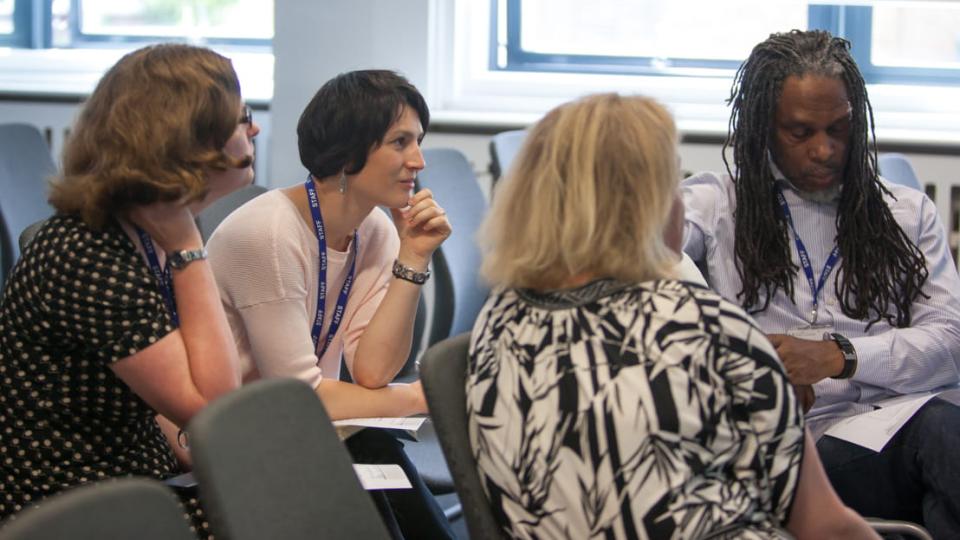
Evidence base for Pyramid Clubs
About Pyramid
Pyramid clubs are special clubs for children who are shy, quiet, withdrawn and who may feel anxious about home or school situations.
On this page you will find out more about the evidence and research supporting the Pyramid programme.
-
Testimonial
“Over the 10 weeks of the Pyramid club there was a significant change in A’s behaviour and she became much more approachable and friendly, no longer making unkind comments to other children. Her teacher had noticed a positive change in her behaviour. Best of all, she was happier, more relaxed and playing with other children!"
- Parent, Melton Mowbray
The evidence base for Pyramid
What Pyramid does
Pyramid clubs offer a therapeutic, group-work, early intervention for children aged seven to 14. They normally run as a targeted after-school club, in order to minimise stigma and make the intervention accessible to the widest number of children.
The clubs offer a developmental journey for those children who internalise their difficulties and are showing early signs of mental health problems such as social withdrawal, somatic disorders, depression and anxiety.
Theory
Pyramid clubs have been developed using concepts from two key psychological models: cognitive psychology and positive psychology.
The clubs offer children and young people an experiential model of learning about and developing strategies for managing their thoughts and feelings in a supportive environment.
The interventions that are used include:
- solution-focused brief therapy
- cognitive behavioural therapy
- attachment theory
- risk and resilience models
- play.
Research evidence that supports the model
Extensive research by the University of West London has used the Goodman's Strengths and Difficulties Questionnaire (SDQ) and other tools to measure the impact of clubs on children as against matched control groups, both immediately post-club and a year on. This has demonstrated the enduring impact of Pyramid clubs. Published papers include:
-
Improving socio-emotional health for pupils in early secondary education with Pyramid: A school-based, early intervention model
Jayman, M., Ohl, M., Hughes, B., Fox, P. (2018) Improving socio-emotional health for pupils in early secondary education with Pyramid: A school-based, early intervention model, British Journal of Educational Psychology, DOI:10.1111/bjep.12225 demonstrated that Pyramid had a buffer effect on the typical academic dip characteristic of this age group (11-14 year olds)
-
Strengthening socio-emotional competencies in a school setting: Data from the Pyramid project
Ohl, M., Fox, P., & Mitchell, K. (2012). Strengthening socio-emotional competencies in a school setting: Data from the Pyramid project, British Journal of Educational Psychology, DOI:10.1111/j.2044-8279.2012.02074.x
-
The Pyramid club primary school-based intervention: Evaluating the impact on children’s social-emotional health
Ohl, M., Mitchell, K., Cassidy, T., & Fox, P. (2008). The Pyramid club primary school-based intervention: Evaluating the impact on children’s social-emotional health. Child and Adolescent Mental Health, 13, 115-221. DOI 10.1111/j.1475-3588.2007.00476.x
Papers published by Ulster University, based on Pyramid clubs run by Barnardo’s in Northern Ireland, include:
-
Group-Based Intervention to Improve Socio-Emotional Health in Vulnerable Children
Cassidy T, McLaughlin M, Giles M (2014) Group-Based Intervention to Improve Socio-Emotional Health in Vulnerable Children. J Psychol Clin Psychiatry 1(7): 00045. DOI: 10.15406/jpcpy.2014.01.00045
-
Prospective evaluation of the Pyramid Plus psychosocial intervention for shy withdrawn children: an assessment of efficacy in 7 to 8-year-old school children in Northern Ireland
McKenna, A. E., Cassidy, T. & Giles, M. (2013). Prospective evaluation of the Pyramid Plus psychosocial intervention for shy withdrawn children: an assessment of efficacy in 7- to 8-year-old school children in Northern Ireland. Child and Adolescent Mental Health. DOI: 10.1111/camh.12023
Other facts and figures
Reach
Pyramid adopts early-intervention principles, working with children at the early signs of problems developing, rather than waiting for full-blown mental health difficulties to develop.
As a result, many young people have already benefited. Over 33,000 children have attended Pyramid clubs across England, Wales and Northern Ireland, since 2004, supported by over 8,000 club leaders. Since its introduction, Pyramid has run at some point in 48 local authority areas in England, 10 in Wales and across most of Northern Ireland.
External validation
Formal evaluation of Pyramid clubs by a number of universities has allowed the Early Intervention Foundation to validate the clubs for inclusion in its Guidebook for commissioners, listing evidence-based interventions to support children’s social and emotional development.
The primary/transition clubs are also included on Mentally Healthy Schools, a government-funded website to help schools find proven interventions to support children’s mental health, as a suitable small-group intervention for children.
Impact on children
The difference that Pyramid makes:
- Improved self-esteem
- Improved self-awareness and awareness of impact on others
- Improved locus of control (internal rather than external) leading to better self-motivation and participation
- Better peer relationships
- Improved relationships with adults
- Increased resilience through the development of coping skills and problem-solving ability
- Development of key skills in emotional regulation and self-soothing
- Improved school attainment through reduced anxiety, a more positive attitude towards school, better attendance and more participation in class
Key attributes of Pyramid
-
Systematised
- Systematised to ensure quality, with guidance on setting up clubs (including screening of children), training of club leaders and post-club evaluation
-
Tried and tested
- Proven to work well for both boys and girls and across different ethnic and social groups
-
Cost-effective
- Low cost through the use of trained volunteer club leaders and existing school staff (teaching assistants/learning mentors) to deliver clubs
-
Certified training for trainers award
- All club leaders trained in advance, with access to ongoing support
-
Well-resourced
- Start-up activity packs provided by the University of West London
- Networks of users of the model who receive regular newsletters and updates to materials
-
Licensed
- Licensed model to ensure consistency of procedures and impact
- Licensed model to ensure consistency of procedures and impact
-
Thorough
- Routine, year-group wide screening that allows other difficulties to be identified
- Routine evaluation of every club and every child/young person attending
-
Current
- Commitment to ongoing research through links with universities and other evaluation bodies
More information
-
Pyramid Clubs for schools
Pyramid clubs are special clubs for children who are shy, quiet, withdrawn and who may feel anxious about home or school situations. Find out more about the Pyramid resources available to support schools, professionals, parents and voluntary organisations interested in Pyramid.
-
Pyramid for primary school
Understand the challenges a child faces when they start school and how Pyramid can help turn those around to create positive experiences.
-
Pyramid for young people aged 11-14
Moving to secondary school is a big adventure but for many it can be overwhelming. Pyramid offers a safe place for young people to unburden themselves and develop a better model of relationships with both peers and adults.
-
Pyramid transition clubs
Moving to secondary school from primary school can be tough but Pyramid transition clubs can help children gain necessary skills to cope with the changes around them.
Contact us
We welcome your queries about joining or running a Pyramid club at your school:
- Email pyramid@uwl.ac.uk
- Call 020 8231 2930 or 07810 853561










